Guide: Using PayPal with Databox
HOW TO
- Connect PayPal to Databox
- Access pre-built PayPal Templates
- Build a Databoard using PayPal data
- Additional Information
How to connect PayPal to Databox
IN THIS SECTION
- How to connect PayPal to Databox
- How to find your API Signature
- How much historical data is synced when you first connect PayPal to Databox?
- What time zone does PayPal data sync in?
- Which PayPal plans can connect with Databox?
How to connect PayPal to Databox
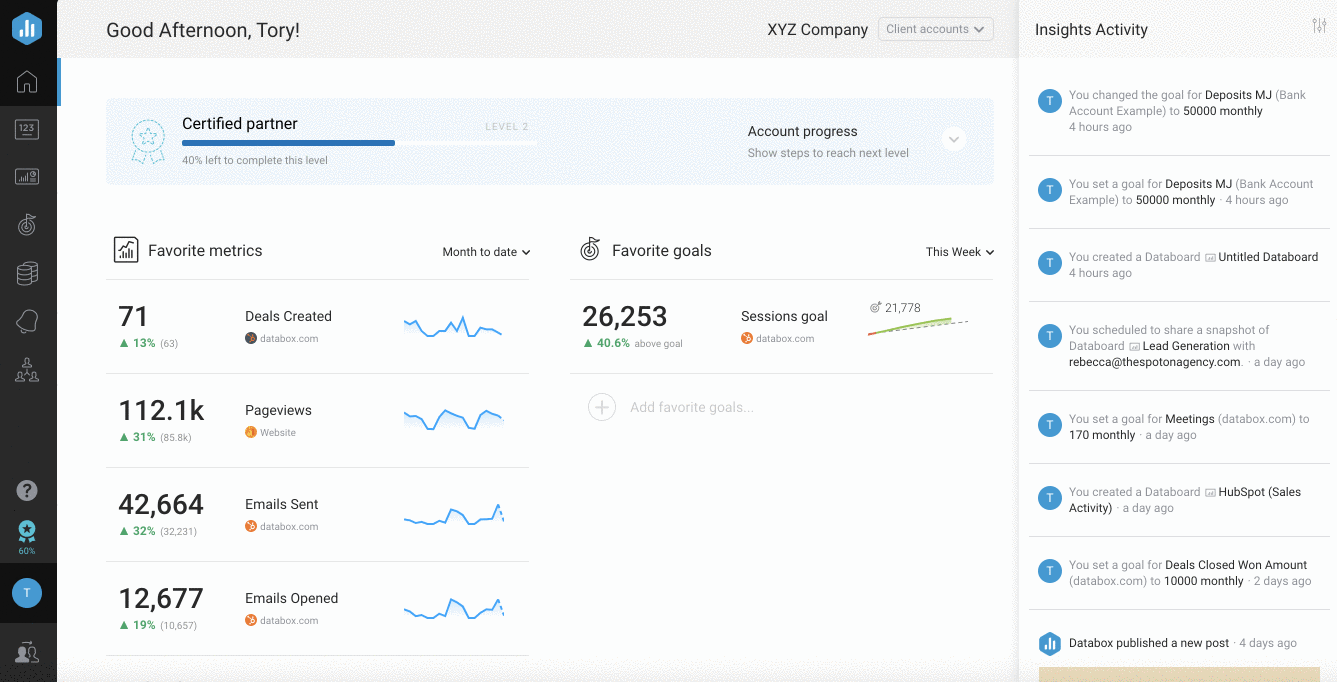
To connect a PayPal Account to Databox, go to Data Sources > + New connection. Type PayPal in the search bar and click on the green Connect button.
This will open the Authorization window, which is where you will be prompted to enter your PayPal API Username, Password, and Signature.
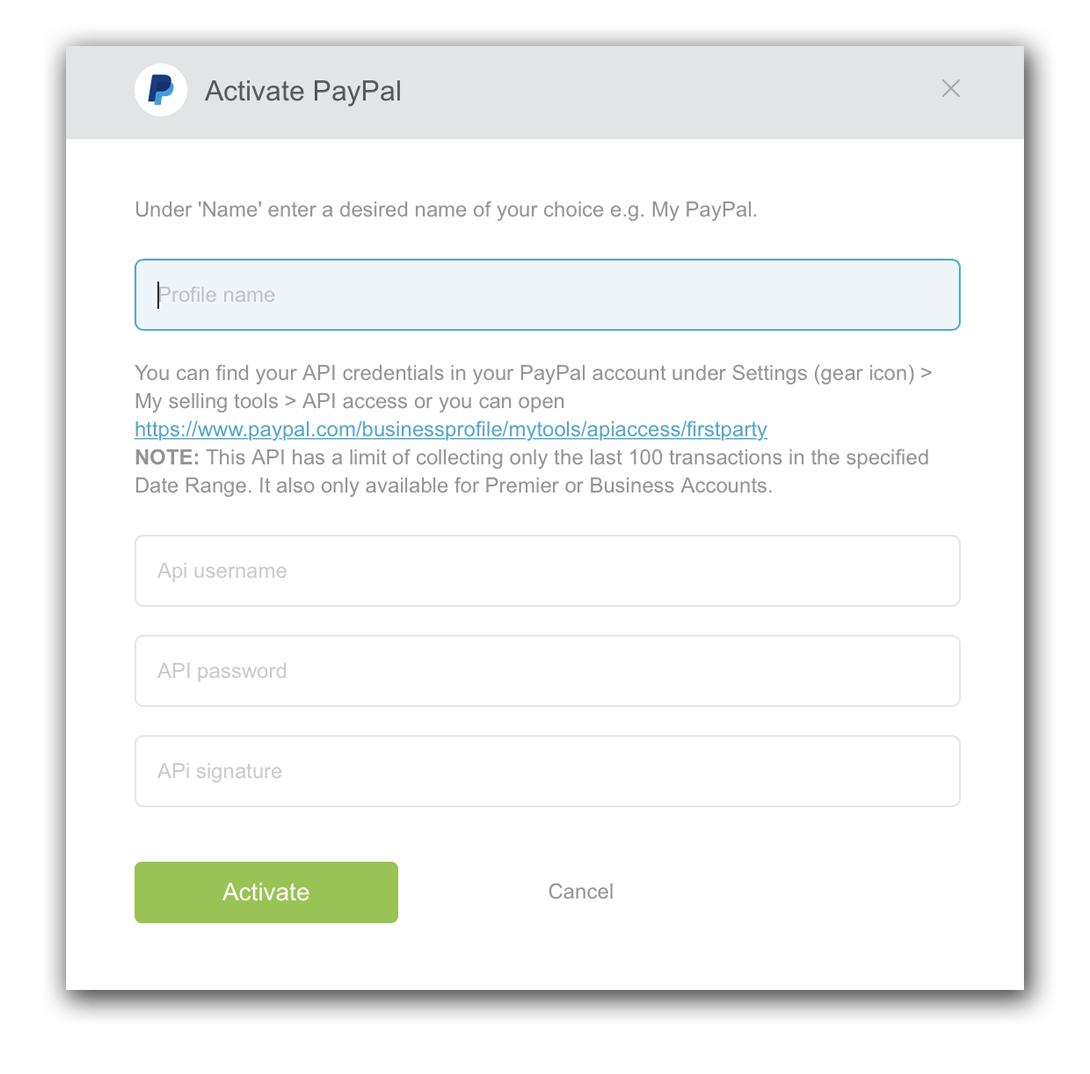
How to find your API Signature
- Login to your PayPal account and click the Profile icon in the top right
- From the Business Profile menu, select Profile > Settings
- Navigate to My selling tools.
- In the Selling online section, find API Access and click Update
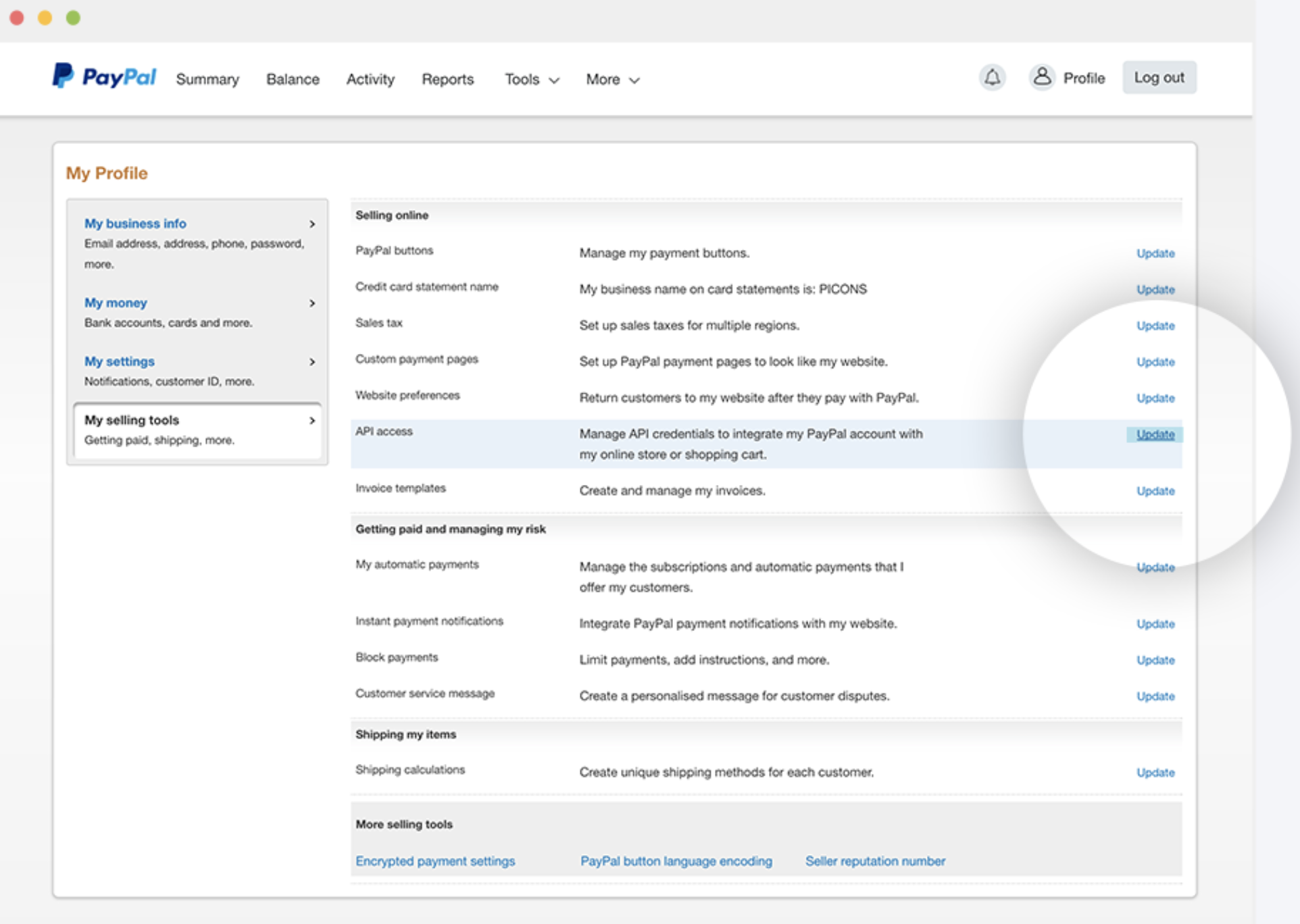 5. In the NVP/SOAP API Integration section, click View API Signature
5. In the NVP/SOAP API Integration section, click View API Signature 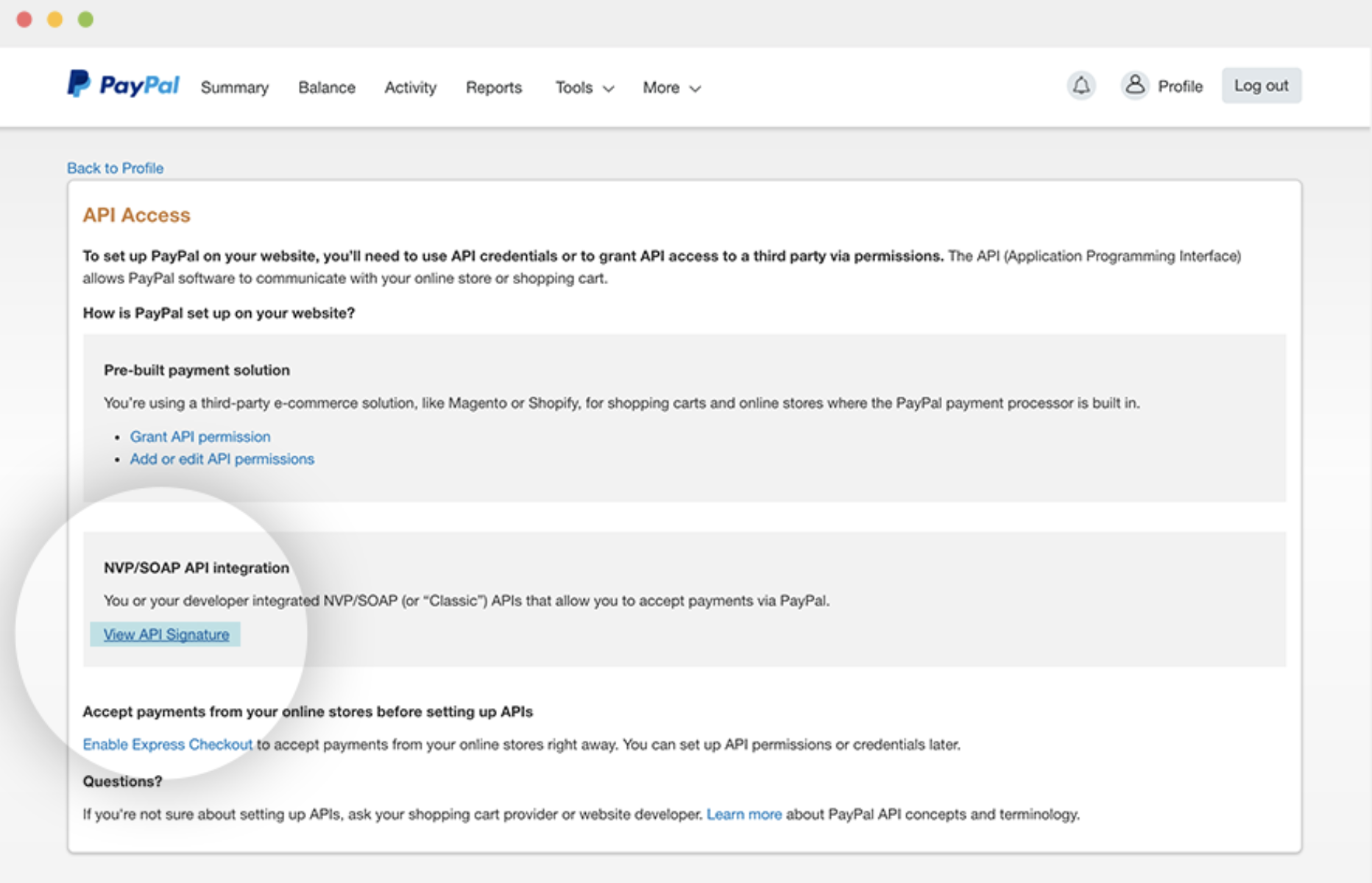
How much historical data is synced when you first connect PayPal to Databox?
When you connect a new PayPal Data Source in Databox, limited historical data is initially synced.
Pro Tip: Once your PayPal Data Source is connected and actively syncing data, we store the data that's collected in our own database. This allows us to accumulate more data over time as more data syncs are made so that you can report on more historical PayPal data in your Databox reports. Learn more here.
What time zone does PayPal data sync in?
PayPal data is synced in UTC.
Which PayPal plans can connect with Databox?
The PayPal integration is available for Premier or Business PayPal Accounts. Personal PayPal Accounts are not currently supported.
How to access pre-built PayPal Templates
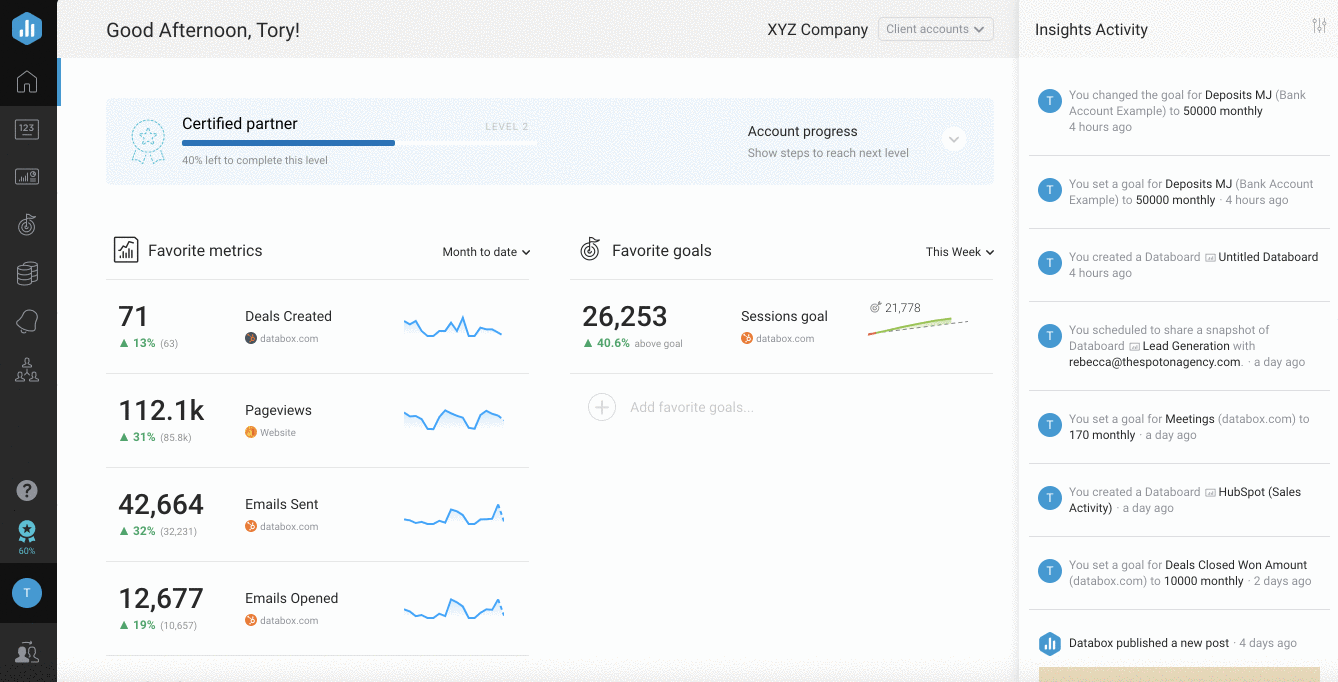
- Navigate to Databoards > Public Templates
- In the Data Source drop-down list, select PayPal
- To view a preview of the Template populated with dummy data, click Preview
- To pull the Template into your Account and re-populate it with your own PayPal data, click Use Template
- Select the appropriate PayPal Data Source from the drop-down list to complete the process. The Databoard will be re-populated with data from the selected PayPal Account and can be found on the Databoards page
Pro Tip: Once the Databoard is available on the Databoards page, it is completely disconnected from the public Template. Therefore, you can further customize this Databoard to meet your specific needs using the Designer.
Popular PayPal Templates
| PayPal (Account Overview) |
|---|
 |
|
This Template allows you to track key metrics for your company, including Gross Sales, Shipping Costs, PayPal Fees, and more.
|
How to build a Databoard using PayPal data
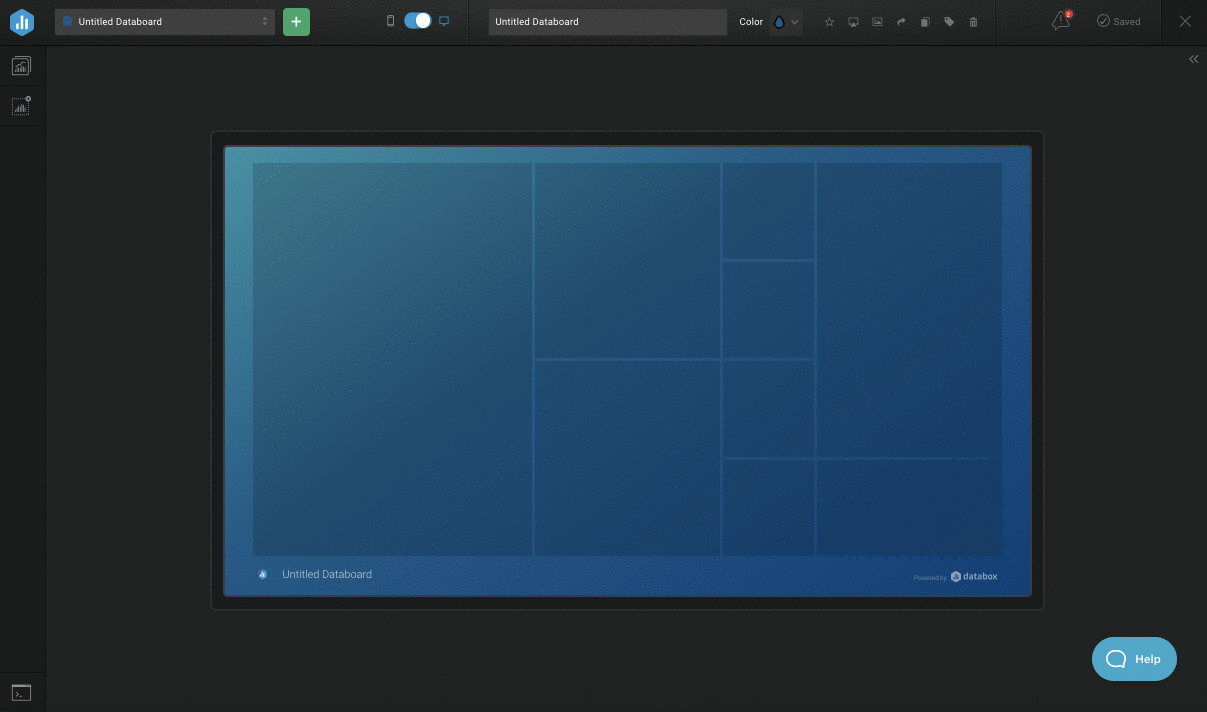
- Navigate to Databoards > + New Databoard > Start Blank
- Click on the Metric Library icon on the left-hand side of the Designer
- Select the appropriate PayPal Account from the Data Source drop-down list in the Metric Library
- View the list of pre-built PayPal Datablocks in the Metric Library. Drag and drop your selected Datablock onto your Databoard
- If a pre-built Datablock isn't available for your use case, click on the Visualization Types icon under the Metric Library icon
- View the list of Visualizations available in Databox. Drag and drop your selected Visualization onto your Databoard
- Click on the Datablock on the Databoard to open the corresponding Datablock Editor on the right-hand side of the Designer
- Select the appropriate PayPal Data Source and Metric in the right-hand Datablock Editor. This will update the Datablock, and it will populate the Datablock with the corresponding data
- Complete steps 4-8 until your Databoard is complete
Popular PayPal Metrics
| Balance | Balance by Currency | Fees by Currency |
|---|---|---|
|
|
|
|
| Gross Sales | Net Sales | Transactions |
|
|
|
|
View a full list of PayPal Metrics available in Databox here.
Additional Information
IN THIS SECTION
Metric Considerations
-
"Balance" and "Balance by Currency" do not have any historical data available. If you connect PayPal today and use the Date Range "Last Month" on a Datablock, no data will be shown. Historical data will continue to accumulate over time in Databox. Learn more here.
API Limitations
- Only the last 100 transactions are available from PayPal's API. If you have more than 100 transactions tracked in a Date Range, the 101st transaction will not be synced with Databox.





